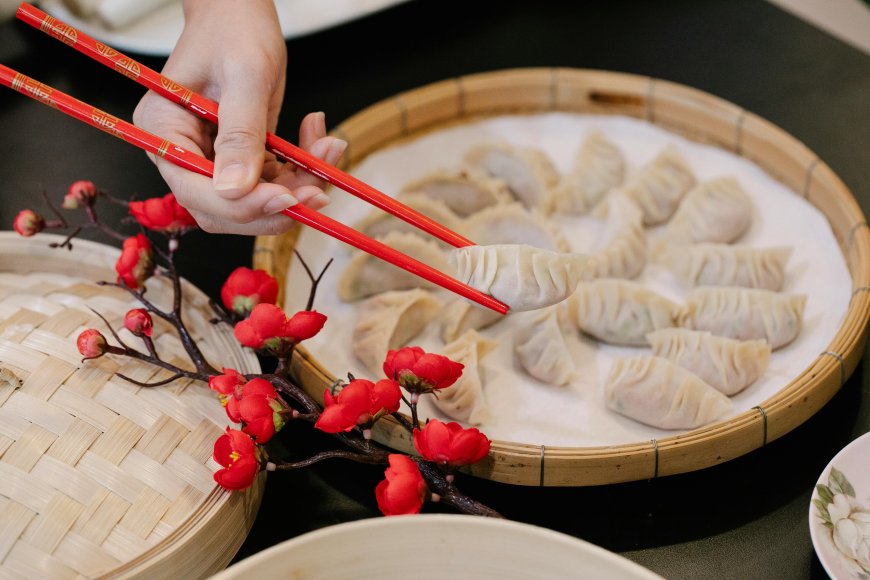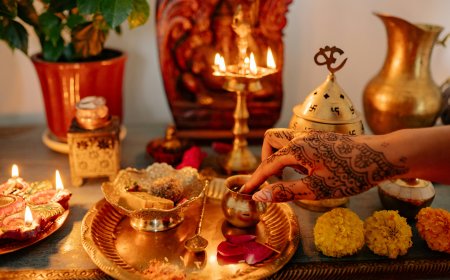The distinctive social traditions of the Japanese people
Japanese traditions form an entrenched way of life characterized by humility and deep respect for others. This humility is evident in their gentle and modest interactions with each other and with visitors, as they pay utmost attention to fulfilling their needs and comfort. Their traditions also reflect a celebration of Japan's rich history and culture, as they preserve many traditional rituals and practices such as tea ceremonies and flower festivals. Through these habits and traditions, the Japanese people seek to maintain a harmonious balance between the past and the present, making it an integral part of their cultural identity.

Japanese traditions form an entrenched way of life characterized by humility and deep respect for others. This humility is evident in their gentle and modest interactions with each other and with visitors, as they pay utmost attention to fulfilling their needs and comfort. Their traditions also reflect a celebration of Japan's rich history and culture, as they preserve many traditional rituals and practices such as tea ceremonies and flower festivals. Through these habits and traditions, the Japanese people seek to maintain a harmonious balance between the past and the present, making it an integral part of their cultural identity.
The distinctive social traditions of the Japanese people
Exploring the beauty and depth of Japanese traditions is an exciting and enjoyable journey into a world full of history and rich culture. These traditions shape the essence of daily life for the Japanese people, expressing deep values and diverse concepts that blend humility, respect, and appreciation.
At the heart of Japanese traditions lies humility, a concept that reflects appreciation for others and recognition of the importance of collective work and collaboration. This humility is evident in the way Japanese people interact with each other and with visitors, characterized by warmth and hospitality, creating a comfortable and welcoming atmosphere.
In addition to humility, Japanese traditions also include respect, a profound value that manifests in respectful interactions among individuals and between different generations. Respect is fundamental in daily interactions, whether within families, communities, or even in public relations.
These Japanese traditions also manifest in daily practices and rituals, such as tea ceremonies and the art of Japanese flower arranging, each considered an art form and ritual characterized by elegance, balance, and nobility.
Through exploring Japanese traditions, we can understand deeper aspects of this diverse and interconnected culture. It's a journey through time, bringing together ancient past and modern present, adding new and exciting dimensions to the experience of Japanese culture.
Foundations of humility and respect in daily life
In the daily life of the Japanese people, the foundations of humility and respect are evident as an integral part of Japanese traditions, reflecting the cultural and spiritual depth of Japanese society.
The foundations of humility and respect begin with interacting with others with goodwill and humility, as Japanese people treat each other with kindness and modesty, without discrimination or boasting. This is evident in the way people converse with each other, characterized by gentleness, warmth, and mutual respect.
Furthermore, humility is manifested in accepting advice and guidance with an open heart and mind, without a hint of pride or objection. Japanese individuals receive advice and guidance with humility and respect, striving to benefit from them to develop themselves and improve their relationships with others.
As for respect, it is demonstrated in treating every individual with dignity and full respect, regardless of age, social status, gender, or nationality. This respect is evident in the daily interaction among individuals, as they exchange greetings and smiles with utmost respect and appreciation.
It is also important to emphasize the significance of respect for Japanese culture and traditions, as respecting Japanese traditions is an essential part of national identity and cultural belonging. Thanks to these values, Japanese society enjoys a spirit of cooperation, solidarity, and mutual understanding, making it a unique and distinctive feature in the world.
A journey through time and history
A journey through time and history in Japanese culture is an exciting and thrilling experience, where the roots of deep Japanese traditions emerge and intertwine with the developments of time to form the unique Japanese culture we know today.
This journey begins in ancient times, where the early Japanese traditions flourished, laying strong foundations for the values and beliefs that greatly influence the lives of the Japanese people to this day. Among these ancient traditions, concepts such as humility, respect, and solidarity stand out, which still form the basis of modern Japanese culture.
Over time, Japan has witnessed economic, social, and cultural transformations and developments. Nevertheless, the Japanese people have managed to preserve the roots of their traditions and authentic values, making it an unforgettable journey to explore Japanese heritage and its profound meanings.
From religious rituals to social and artistic practices, the values of Japanese traditions manifest across various aspects of daily life. For example, the Shinto festivals and the annual cherry blossom viewing express respect for nature and celebration of the seasons, while the art of Ikebana embodies balance, beauty, and appreciation for nature.
Despite technological advancements and changes in modern life, the Japanese people remain committed to preserving their traditions, passing them down through generations as part of their national identity and cultural belonging. The journey through time and history in Japanese culture reflects the sacrifices and achievements of the Japanese people throughout the ages, and also demonstrates their steadfastness to their values and traditions in the face of modern challenges.
Unique experiences that embody Japanese traditions
Unique experiences that embody Japanese traditions encompass a diverse range of events and practices that reflect the cultural depth and spirit of the Japanese people. These experiences are an integral part of Japanese culture and express the values and beliefs that form the basis of Japanese interaction with the world around them.
Among these unique experiences, Japanese tea ceremonies stand out as one of the most significant occasions in Japanese culture. This festival holds great importance in Japanese traditions, as tea drinking is considered a ceremony of religious, social, and artistic significance. Tea holds a special place in Japanese culture as a source of harmony, tranquility, and social interaction, and serving tea to guests is a sign of respect and appreciation.
In addition to tea ceremonies, Japanese flower arts such as Ikebana represent another unique experience that embodies Japanese traditions. Ikebana is considered a traditional art aimed at expressing the beauty and balance of nature through arranging flowers in specific ways according to defined artistic rules. This unique experience reflects the Japanese philosophy that believes in finding beauty in simplicity and balance, and it also reflects deep respect for nature and appreciation of the beauty it offers.
The unique experiences of Japanese traditions are manifested in tea festivals, Ikebana, and other events and practices that form a vital part of Japanese culture. They are priceless experiences that express the deep spirit and cultural intricacies of this wonderful people and highlight the diversity and beauty of their traditions.
Holidays and celebrations in the light of Japanese traditions
Holidays and celebrations in Japanese culture constitute an important part of Japanese traditions, reflecting the values, beliefs, and traditions that form the essence of daily life for the Japanese people.
Among the significant holidays in Japan, we find New Year's Day, "Shogatsu," which is one of the most important celebrations in Japanese culture. Japanese people celebrate the coming of the new year with a series of traditional rituals, such as cleaning their homes, visiting temples, and lining up at restaurants to have a traditional meal called "Osechi," consisting of specific foods symbolizing wishes for luck and prosperity in the new year.
Japanese also celebrate Valentine's Day, "Honi," in a unique way that reflects their traditions. On this day, men give gifts to women, usually in the form of chocolates. In return, gifts are given to men on Father's Day, "Tachi," and Eternal Love Day, "White Day."
Among the important religious holidays in Japan is the Obon Festival, "Obon Matsuri," which is considered a time to honor the spirits of ancestors. Japanese people visit the graves of their relatives and organize traditional festivals to commemorate their ancestors by offering food and flowers as tokens of appreciation and respect.
Holidays and celebrations in Japan reflect the deep traditions and cultural values that the Japanese people have preserved over the ages. They are an opportunity to strengthen social and familial bonds and to express appreciation and respect for ancestors and ancient traditions that are an integral part of their cultural identity.
How Japanese traditions influence modern society
Japanese traditions have a profound impact on modern society, reflecting and shaping the values and beliefs that Japanese people live by in their daily lives. These traditions influence society in several ways, including:
1. Balancing tradition and modernity: Despite significant advancements in technology and urban life, Japanese traditions remain an important part of the cultural identity of the Japanese people. This balance between tradition and modernity reflects the Japanese society's ability to preserve its historical and cultural heritage while adapting to modern changes.
2. Promoting cooperation and solidarity: Japanese traditions encourage collective work and foster a spirit of cooperation and solidarity in society. This is evident in ethical principles such as respect, humility, and dedication to serving the community and family.
3. Respect and appreciation for others: Values of respect and appreciation are fundamental in Japanese traditions, which is reflected in the daily interactions among individuals in society. People learn to respect others and appreciate their opinions and contributions, contributing to building healthy and favorable relationships.
4. Preserving the environment and nature: Japanese traditions promote awareness of the importance of preserving the environment and nature. This is evident in practices such as Ikebana art and celebrating flower seasons and natural events, where awareness of the beauty of nature and the need to conserve it are emphasized.
Japanese traditions greatly influence modern society by shaping the values and principles that individuals in society live by, guiding their behavior and interactions with each other and with the surrounding environment. These traditions promote stability, balance, and understanding in Japanese society, contributing to the building of a strong and flourishing community.
Japanese heritage redefines meanings
Japanese heritage is a rich source of meanings and values that transcend time and place, reshaping them in innovative and evolved ways, making it an exemplar of Japanese traditions that evolve and renew over time.
One of the prominent ways in which Japanese heritage redefines meanings is through its diverse arts, such as Kabuki, which combines verbal, gestural, and musical performance. This ancient art carries profound values and meanings such as patience, humility, and respect, serving as a cultural heritage expressing the identity of the Japanese people.
Additionally, the art of Ikebana reshapes meanings by arranging flowers in specific artistic ways that reflect balance, beauty, and uniqueness. This art is not merely a hobby but also an expression of the Japanese philosophy that finds beauty in simplicity and balance in life.
Through traditional festivals and celebrations, Japanese heritage continues to redefine and highlight meanings in a renewed manner. For instance, the Hanami festival is not only a celebration of cherry blossoms but also an expression of joy in life and appreciation for nature, embodying the sense of belonging and appreciation for seasons and natural changes.
Japanese heritage is a significant source of redefining meanings and values, expressing the evolution and renewal of Japanese traditions over time, contributing to building bridges of understanding and appreciation between different generations and cultures.
Summary
The social traditions of the Japanese people are distinguished by their depth and diversity, forming an essential part of Japan's cultural identity. These traditions manifest in respect, humility, and cooperation, reflecting fundamental values like respect for others and appreciation for heritage and nature. Practices such as tea ceremonies, ikebana (flower arranging), and seasonal celebrations and festivals are among the ways through which Japanese traditions express their depth and influence on society. Japanese traditions embody a balance between tradition and modernity, serving as a bridge between the past and the present, making them an integral part of Japan's national identity and cultural heritage.
Sources
1. Culture Trip
- Offers diverse articles about traditions and customs in Japan, including cultural heritage, celebrations, and religious rituals.
2. Japan Guide
- Contains articles and information about Japanese traditions, including social customs, culinary traditions, and annual celebrations.
3. Japan National Tourism Organization (JNTO)
- Provides educational resources about Japanese culture, including social traditions, religious customs, and cultural festivals.
What's Your Reaction?











































































































